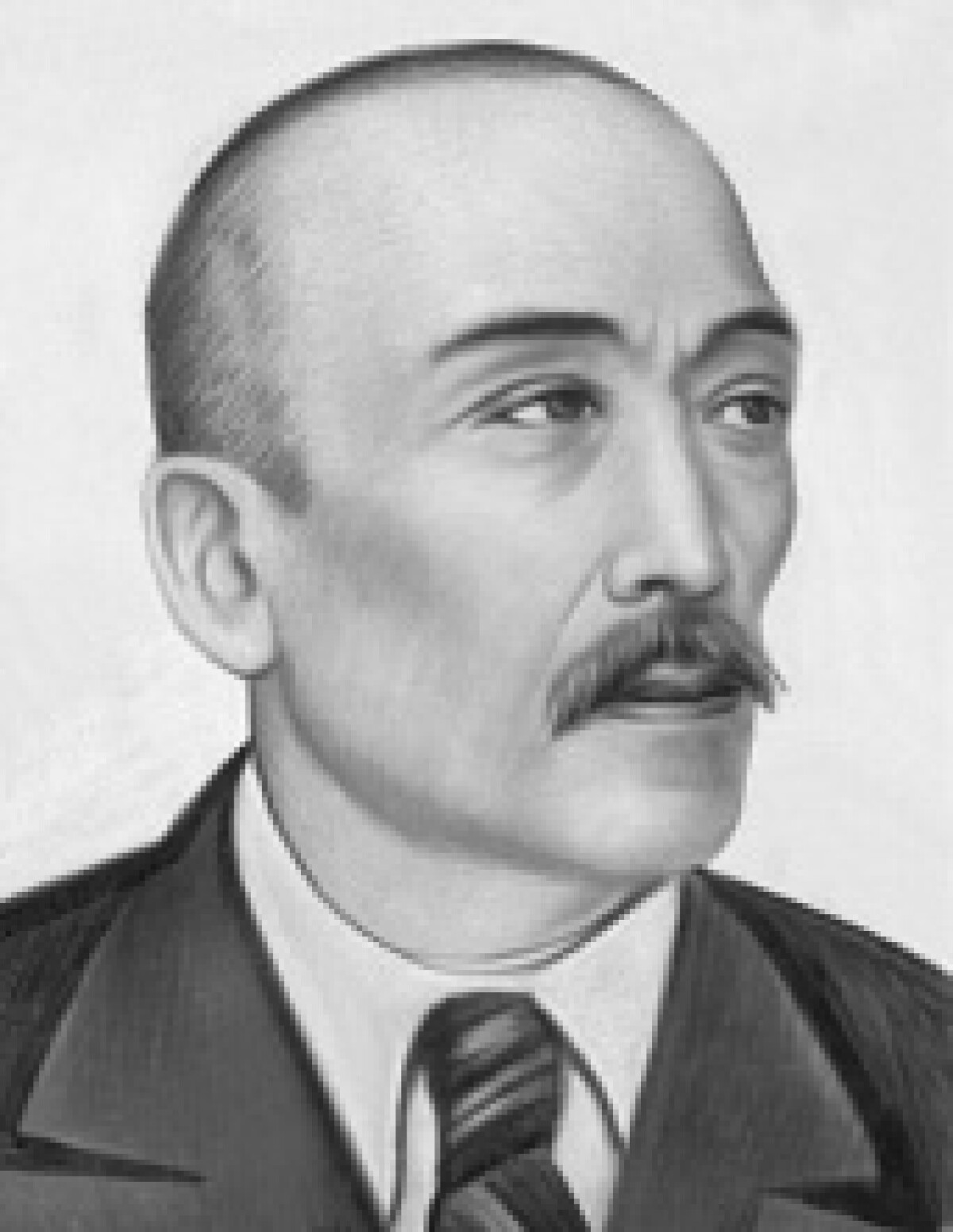Kobeyev Spandiyar
Spandiyar Kobeyev (1878 - 1956) was the Kazakh Soviet writer, the representative of critical realism in the Kazakh literature of the XX century, the public figure, the deserved teacher of the Kazakh Soviet Socialist Republic, the founder of new schools in villages.
Spandiyar Kobeyev was born on October 1 (13), 1878 in Turgay area (nowadays - Kostanay area).
Kobeyev studied at the Kazakh-Russian school based by I.Altynsarin, on courses on preparation of teachers of elementary school in Kostanay. Kobeyev gave lessobs of Russian and literature to the Kazakh children. In pedagogical activity he followed methods of teaching of I.Altynsarin. His first book went out in 1910 in Kazan and was called «Obrazcovyi perevod» («Exemplary translation») with the translations of fables by Ivan Andreyevich Krylov and Kobeyev’s own fables.
He also made a textbook for reading for the Kazakh schools «Primernoye ditya» (Exemplary child) based on principles of the K.Ushinskiy’s anthology «Rodnoye slovo» (A native word). The book included the fables by I.Krylov translated by Kobeyev, legends, poems of Russian writers-teachers, samples of the Kazakh folklore, short stories on the natural phenomena and fauna.
In 1913 the first Kazakh novel "Kalym" (Bridewealth) was published. Spandiyar Kobeyev became the author of the first Kazakh novel "Vykup" (Repayment, 1913) where he subjected to criticism a patriarchal life, oppression of the aul poor people, position of a woman deprived of civil rights.
He was the member of Communist Party of the Soviet Union since 1940. The representative of critical realism in the Kazakh literature of the beginning of 20 century he took active part in construction of the Soviet school in Kazakhstan, wrote many articles concerning education and formation of younger generation. His pedagogical views were reflected in scientific articles «Оқытушының беделді болуының маңызы», «Балаларды мәдениеттілікке тәрбиелеу», «Балаларды оқуға ынталандыру туралы», etc.
Spandiyar Kobeyev wrote memoirs «Sbyvshiesya mechty» (Come true dreams, 1951) that have autobiographical character, and are depicting the life of pre-revolutionary aul and radical restructurings in the Kazakh steppe for years of the Soviet power.
Spandiyar Kobeev was awarded by Lenin's two awards.
Share:









